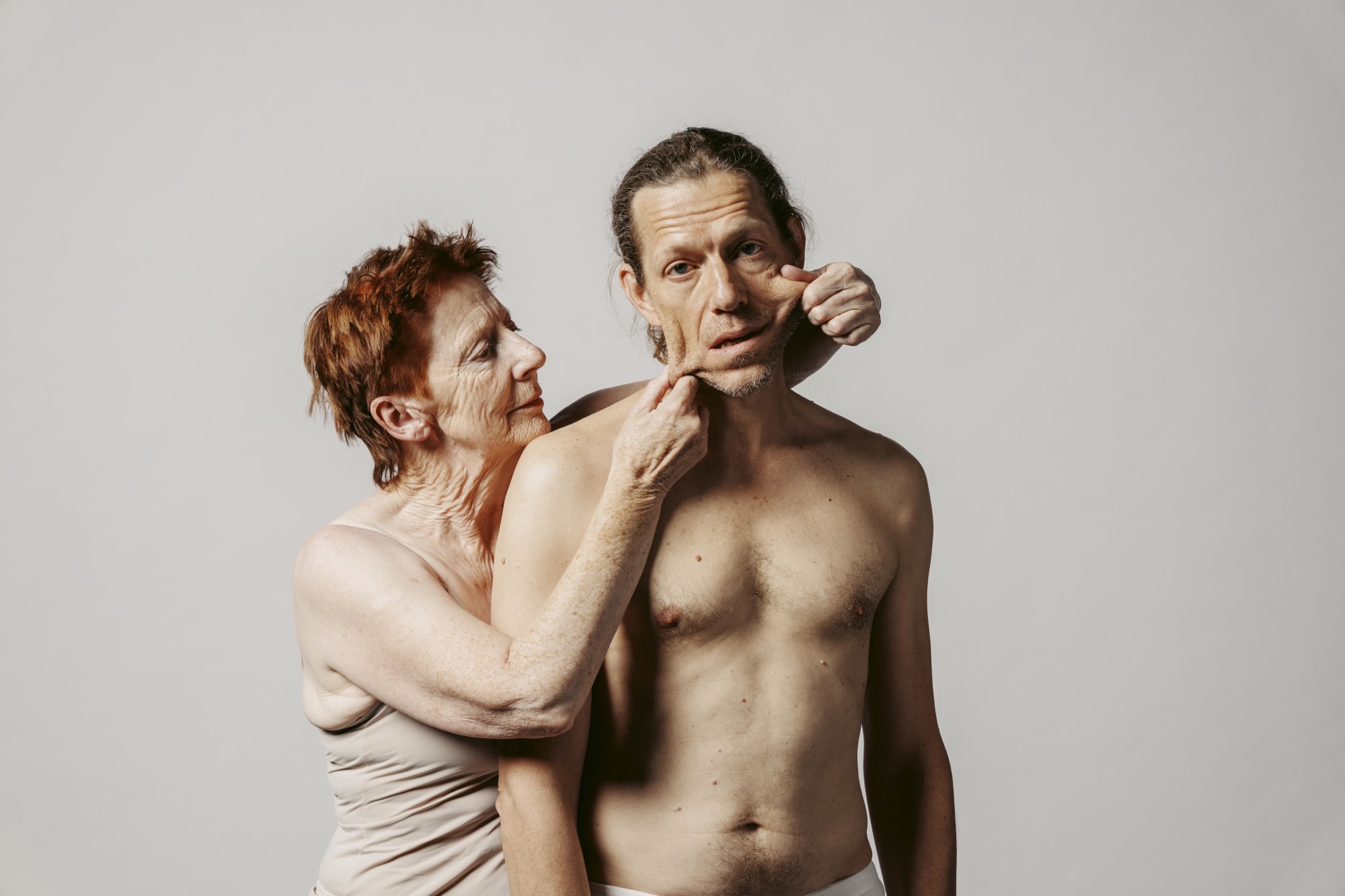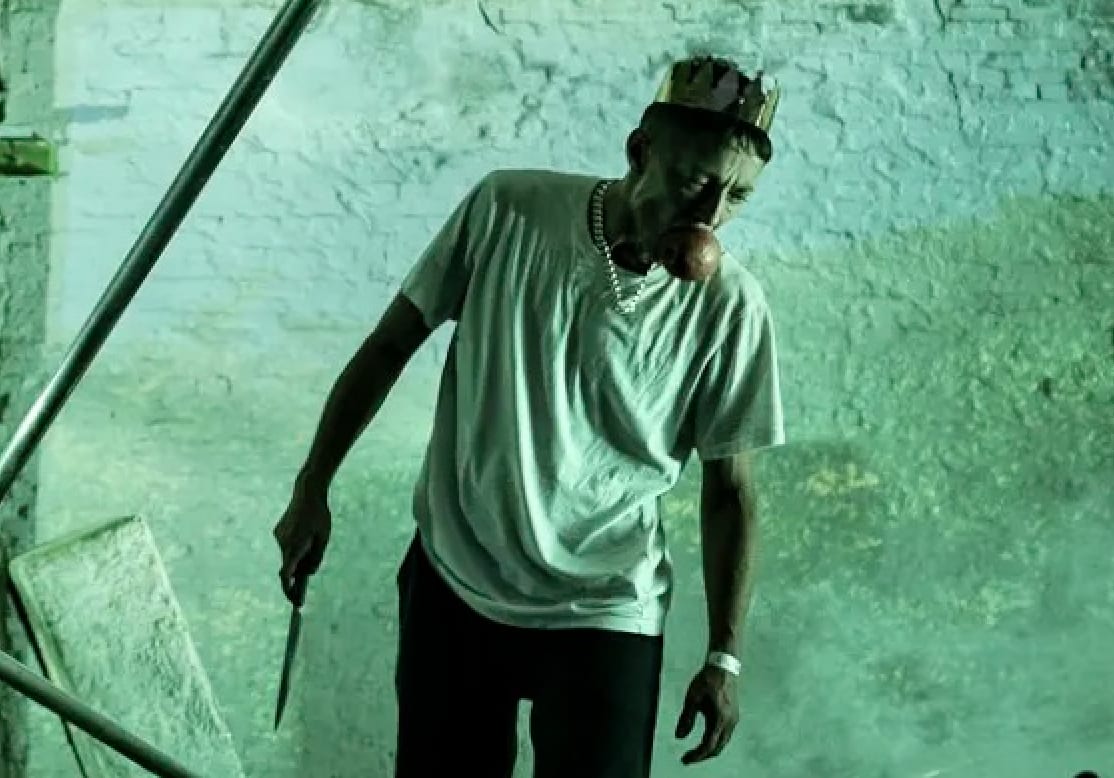One focus of Gessnerallee's curatorial and dramaturgical work over the next four years will be ‘Aesthetics of Access’. The term goes back to the English ‘Graeae Theatre Company’ and refers to various artistic practices from a disabled and deaf/hard of hearing perspective that consider accessibility as part of the creative process. Accessibility resources such as surtitles are part of the concept and rehearsals from the very beginning and are developed with the same artistic standards as the stage design or the choreography. The aim is to offer disabled and deaf/hard of hearing visitors an equally aesthetic theatre experience as the non-disabled, hearing audience.
Aesthetics of Access are an appealing alternative to retrospective accessibility programmes that are only developed once a production is (almost) finished. In this case, the accessibility tools have no influence on the aesthetics and are often based on a checklist that is the same for every play. Artistic accessibility, on the other hand, is just as diverse as the productions themselves.
Examples of Aesthetics of Access are:
Integrated audio description (AD): The auditory description of the visual level, such as costumes, props and movements, is not broadcast via headphones issued only to blind and visually impaired visitors, but is audible in the room for the entire audience i. Instead of the AD having to adapt to the rhythm of the production, it co-determines its dramaturgy. Other elements of blind dramaturgy are often used, such as tactile objects or sound-generating costumes.
Relaxed Performance (RP): The production deals artistically with the fact that certain theatre-specific conventions, such as sitting still for long periods in a confined space, unannounced strong sensory stimuli or interaction, can represent a barrier, especially for neurodivergent people. Detailed information is provided about the course of the event and the aesthetic means used, and it is possible to leave the room. An inviting, aesthetically designed announcement that this is an RP and what this means is part of the performance.
Spoken and sign language(s): Hearing and deaf/hard of hearing performers use sign language and spoken language(s) on an equal footing. Translation and communication processes are part of the stage action and function without interpreters. An individual aesthetic of language, communication and (non-)understanding is developed for hearing and deaf/hard of hearing audiences.
As a dramaturge with a disability, I feel a strong connection to the Aesthetics of Access. Because the development of artistic applications of accessibility is an important part of disability and deaf culture. Therefore, as disabled and deaf/hard of hearing artists and access dramaturges, we are the experts for their realisation. This is why Aesthetics of Access can not be created by exclusively non-disabled, hearing teams, but only under our direction or in close artistic collaboration with us. So if you want to programme more Aesthetics of Access at your venue, you need to work more closely with us. This not only promotes the long-neglected artistic development of disabled and deaf/hard of hearing people, but also the creation of new aesthetics that offer equally exciting experiences for disabled and non-disabled, deaf/hard of hearing and hearing audiences.
Aesthetics of Access in the first season
At the start of the 2024/25 season, we will already have several opportunities to experience aesthetics of access, to work on them and to exchange ideas about them:
For the opening, we will be hosting the Scottish production ‘The Making of Pinocchio’ by Cade & MacAskill on 27 and 28 September at 7.30 pm. It is conceived as a relaxed performance and will be offered with surtitles and an audio description.
The Zurich-based group Criptonite is organising the ‘Crip Lab’, in which disabled and deaf/hard of hearing artists test and refine working practices together. On 22 September at 4 pm, the lab invites all interested parties to a sharing.
In collaboration with the Swiss Performance Award, which will take place on 20 October between 11 am and 5 pm at Gessnerallee, we will train a group of neurodivergent cultural actors in the ‘Laboratory for Relaxed Performance’. The aim is to build a network of experts who, in the long run, can support productions and cultural institutions in the artistic realisation of relaxed events.
On 13 and 14 December, the dazzling cabaret evening ‘Unsightly Drag and Friends’ by Quiplash is coming to Gessnerallee. The entire evening uses various forms of creative audio description and was also conceived as a relaxed performance.
But this is just the beginning: here's to the coming years and the collective journey with artists and audiences into the exciting world of artistic accessibility.



